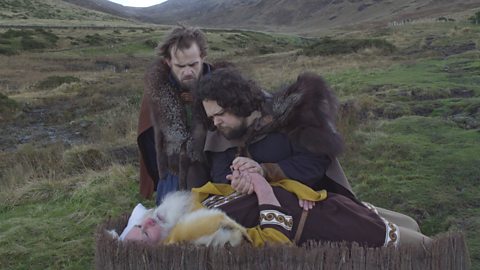How was Viking society organised?
The Vikings were not all bloodthirsty raiders. Some came to fight, but others came to Britain to live peacefully.
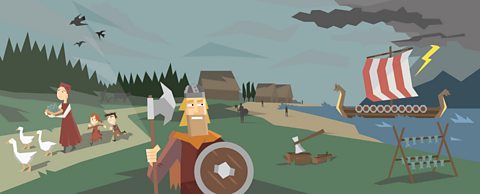
| Viking | Who were they? | What did they do? |
|---|---|---|
| King | The most powerful person in all the land | Ruled the people and everyone looked up to him |
| Jarls (nobles) | Rich landowners or traders | They employed men to work for them |
| Karls | Everyday people like farmers and craft workers | They weren't as rich or important as jarls but they weren't poor either |
| Thralls (enslaved people) | Bottom of the hierarchy | They did the hardest, dirtiest jobs and if they tried to run away they could be killed. However, if thralls could earn enough money they could buy their freedom |
Who was Eric Bloodaxe?
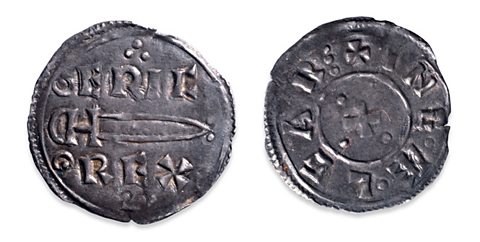
Norwegian Eric ‘Bloodaxe’ led his own kingdom in York in the 950s.
31 coins minted at York bear Eric’s name but he was betrayed and killed in AD954.
What jobs did Vikings do?
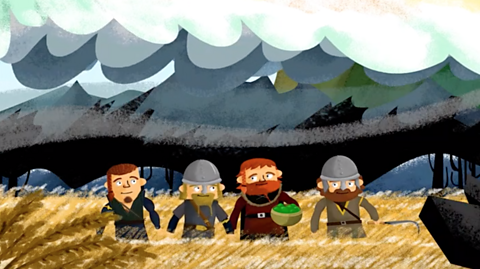
Many Vikings worked as farmers. Everything had to be done by hand on a Viking farm, so life was tough.
Farmers grew oats, barley and wheat. They ground the grain to make flour, porridge and ale. They planted vegetables, and kept animals like cows, sheep, pigs and chickens.

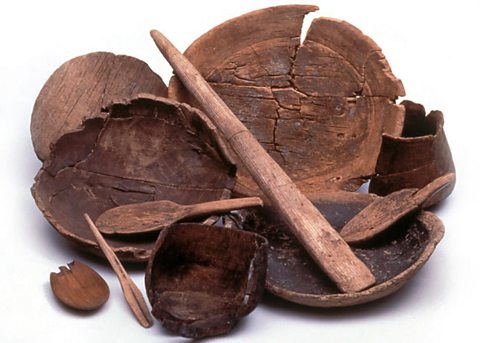
Other jobs were:
- Craft workers who made plates, cups, belts and shoes.
- Jewellers who made rings and brooches from precious metals.
- Blacksmiths who hammered red-hot iron into tools, knives and swords.
- Potters who baked clay pots in a wood fire oven.
People sold these goods at markets. Here a family could buy anything from amber beads and apples, to walrus tusks and wolf-skins. Vikings also sailed the seas to buy silver, silk, spices and furs.
Where did Vikings live?
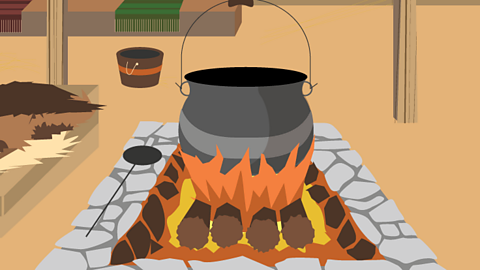
With just one room for all the family to share with their animals, a longhouse would have been a crowded and smelly place to live.
This was built from wood or stone and had a thatched or turf roof on top.
There was no bathroom inside, but the Vikings kept clean by washing in a wooden bucket or beside a stream.
Instead of toilets, people used a cesspit, which was a hole outside dug for toilet waste.

What did the Vikings believe?
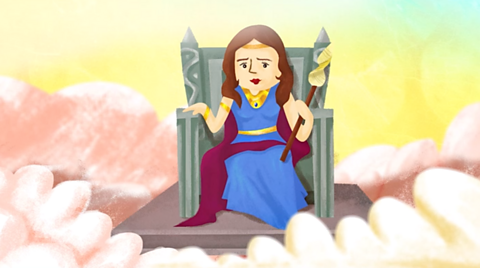
The Norse people worshipped many gods and loved to tell stories of magic and monsters around the fire.
The Vikings loved to tell myths and legends about their gods.

Watch: Viking beliefs
Find out more about what the Vikings believed
The gods were very important to the Vikings. They loved to talk about them, worship them and argue about them which was their favourite!
The Chief god was Odin. He created Midgard, the home of the humans, and Asgard, the home of the gods.
Thor was the god of thunder, who fought with a mighty hammer so powerful it could crush mountains.
He rode a chariot pulled by two goats, which he often ate and then brought back to life!
The Norse people loved Thor, because he was the god who protected them and their world.
His goats might not have been so keen on him though!
Loki was a trickster and he loved making trouble.
He also had the rather cool power of being a shape-shifter.
Eventually Loki went too far with his pranks and the gods punished him severely!
There were other gods too like Frigg, the wife of Odin, and Mani the god of the moon.
There were also gods for things like peace, winter and even old age!
The Vikings believed that they might wonder the world as ghosts if they weren’t given the right type of funeral.
And important Vikings, such as chiefs, wanted to be just as powerful in the afterlife, so they were often cremated on a burning ship along with their favourite treasures, weapons, pets and even servants.
If Vikings died bravely in battle they might be selected by Odin to go to great feasting halls such as Valhalla.
Flying warrior maidens called Valkyries would escort them from Midgard to the afterlife.
There they would fight, drink and eat all day and night with the gods – and Thor’s goats, of course.
Did the Vikings have laws?
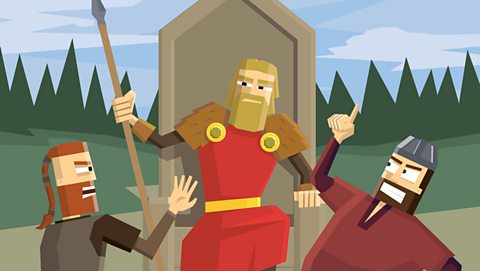
- Vikings had their own laws and government.
- People gathered at a meeting called a‚ÄØ‚ÄòT≥Ûæ±≤‘≤µ‚Äô. Here they would settle problems and make decisions.
- People could vote on what should happen. For example, the Thing might decide who owned a piece of land or how to punish a criminal.
- All this was overseen by a judge known as a‚ÄØlaw-speaker.
- Viking laws were not written down, so laws were passed from person to person by word of mouth.
- People who broke the law became‚ÄØoutlaws. They had to live in the wilderness and anyone was allowed to hunt them down and kill them.
- Vikings could also settle arguments with a fight known as a‚ÄØHolmgang. Whoever won the duel was seen as chosen by the gods.

Activities
Activity 1: Viking families
Click on each of the Viking family members below to find out more about their life.
Activity 2: Viking homes
Click on the labels to find out more about what was inside a longhouse.
Activity 3: Quiz – Viking life
Bitesize Primary games. gameBitesize Primary games
Play fun and educational primary games in science, maths, English, history, geography, art, computing and modern languages.

More on Vikings
Find out more by working through a topic
- count1 of 10
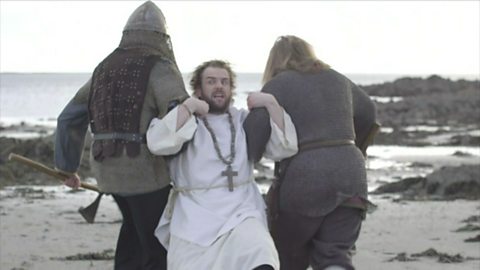
- count2 of 10
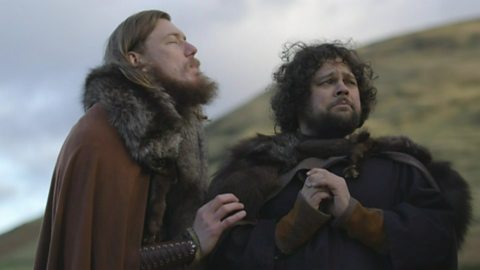
- count3 of 10
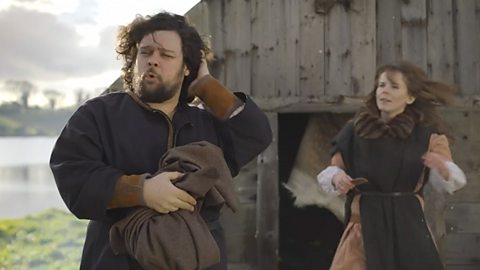
- count4 of 10
